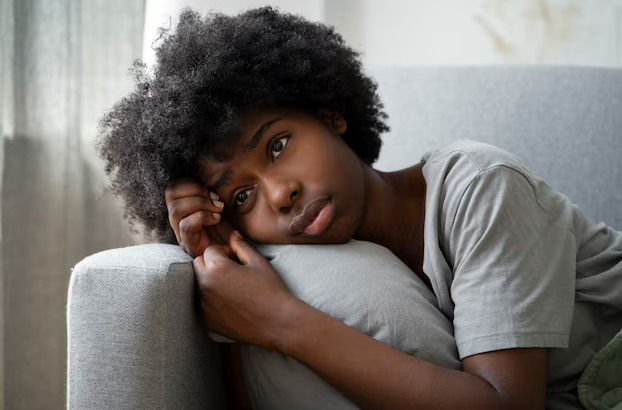TO WOMEN WHO LOVE THEIR ALCOHOL
Are you a woman who has taken to having an alcoholic drink regularly?If so you could be putting your health at risk. According to a study by WHO World Health survey of African women(including female youth) are drinking more and more. (b mcpublichealth.biomedcentral.com/ ). Women are using alcohol to cope with the chronic levels of stress. This trend istroubling because of the harmful consumption of alcohol and drugs. Particular alcohol risks in womenDid you know, while many are able to drink responsibly, alcohol use does pose unique risks to women? Alcohol affects women in unique ways. A woman’s body processes alcohol more slowly than a man’s. One drink for a woman has about twice the effect of one for a man. Plus, women have a “telescoping,” or accelerated, course of alcohol dependence, meaning that they generally advance from their first drink to their first alcohol-related problem to the need for treatment more quickly than men. Several biological factors make women more vulnerable to the effects of alcohol than men. ❖ Body fat. Women tend to weigh less than men, and—pound for pound—a woman’s body contains less water and more fatty tissue than a man’s.Because fat retains alcohol while water dilutes it, alcohol remains at higher concentrations for longer periods of time in a woman’s body, exposing her brain and other organs to more alcohol. ❖ Enzymes. Women have lower levels of two enzymes—alcohol dehydrogenase and aldehyde dehydrogenase—that metabolize (break down) alcohol in the stomach and liver. As a result, women absorb more alcohol into their bloodstream than men.❖ Hormones. Changes in hormone levels during the menstrual cycle may also affect how a woman metabolizes alcohol. These biological factors explain why women become intoxicated after drinking less and are more likely to suffer adverse consequences after drinking smaller quantities and for fewer years than men. Women also tend to develop alcohol-related diseases and other consequences of drinking sooner than men, and after drinking smaller cumulative amounts of alcohol. Women are also more likely to abuse alcohol and other substances in order to self-medicate problems such as depression, anxiety, and stress, or to cope with emotional difficulties. Women who drink more than more than about 7 drinks a week, are at increasedrisk of car accidents and other traumatic injuries, cancer, hypertension, stroke, and suicide. In addition, drinking at an elevated rate increases the likelihood that a woman will go on to abuse or become dependent on alcohol. Alcohol and Breast CancerAlcohol may also raise a woman’s chance of developing breast cancer. Each additional 10 grams of alcohol (the amount in about one 4-oz glass of wine) per day raises the relative risk of developing breast cancer over a lifetime by about 10%. To put this in perspective: Sexual and physical abuse increases risk Evidence also suggests that sexual or physical abuse during childhood may predispose both men and women to alcohol and drug problems in adulthood. Since women are more likely to have been victims of childhood sexual abuse, they are disproportionately affected. Research shows that:❖ Women who have been physically or sexually abused as children are far more likely to drink, have alcohol-related problems, or become dependent on alcohol.❖ Physical abuse during adulthood, which is suffered more by women than men, seems to raise a woman’s risk of using and abusing alcohol.❖ Alcohol is a major factor in violence against women, playing a role in as many as three of every four rapes and nearly the same percentage ofdomestic violence incidents. ❖ Women with a family history of alcohol abuse are more likely than men with the same background to abuse alcohol. Drinking during pregnancy is never a good idea Drinking alcohol during pregnancy can cause an array of physical and mental birth defects, and is the leading preventable cause of mental retardation.When a pregnant woman drinks, alcohol passes through the placenta to her fetus. In the fetus’s developing digestive system, alcohol breaks down much more slowlythan it does in an adult body, meaning that the fetus’s blood alcohol level can remain high for longer periods. Any kind of alcohol in any amount can harm a developing fetus, especially during the first and second trimester. Physicians and public health officials recommend that women avoid drinking any alcohol during pregnancy. Healthy Drinking Tips. To look after your health when drinking, it is best to keep your units to a low level. For women, it is safest not to drink more than 14 units a week on a regular basis. 14 units means roughly six pints of lager or one and a half bottles of wine. If you have one or two heavy drinking episodes (binge drinking) a week, you increase your risk of long term illness and injury. The risk of developing a range of health problems (including cancers of the mouth, throat and breast) increases the more you drink on a regular basis. If you wish to cut down on the amount you drink during the week, you can have several drink-free days a week. Finally… Drinking to make yourself feel better or to drown your sorrows, even though you may get some relief from using alcohol and drugs, it is only short term.In the long run, drugs and alcohol can make you feel worse because: ❖ You avoid problems; you don’t solve them.❖ Drugs and alcohol affect how you work, play, or get along with others.❖ You can become dependent on them. Alcohol is a drug. Even though it has been used throughout history, for social occasions, to celebrate initiation ceremonies and milestones and holidays. So alcohol itself is not inherently evil. When used responsibly, alcohol can turn social gatherings to enjoy pleasant experiences. BUT when it is misused like everything else, alcohol can do more harm than any other drug in the world. Because it’s socially acceptable. AT the end of the day, ask yourself this: IS the cost of Your addiction to alcohol worth your family, friends and your health? Find Out if you are addicted to
Read MoreStruggling to set boundaries with Boundaries with your adult children?
I remember when our daughter was young, my presence was central to her life. I, asMum, provided daily support and supervision. And now that she is an adult, the way inwhich I am present for her has had to change…and am still learning everyday along theway of this new season, which has its challenges! When our young adults leave the family home, I realize boundaries with parents oftenhappen organically. Your children settle into their new life with its freedoms andresponsibilities. Setting boundaries with our adult children, especially those who arearticulate, shrewd, manipulative, and can present very persuasive arguments, can bevery challenging and frustrating. Do you help your adult child to the point that it has become a pattern of unhealthyrescuing? Maybe you ‘save’ your adult child every time he or she is in trouble? You may be making things worse in the long run. Maybe you struggle with knowing where to drawthat fine (or not so fine) line between letting them know how to stand on their own twofeet and bailing them out. As parents, we need to be thoughtful about how to assist ouradult children without enabling them. Adult children who remain overly dependent on their parents become dependent,because we, as parents have colluded with the adult children in enabling them tobecome codependent. Often this relationship stems from those parents who want to beneeded or feel the need to overcompensate for childhood reasons and or their ownchildhood issues. It can be very challenging for parents to set boundaries for adultchildren who have become overly dependent. It is frustrating, draining and emotionallydepleting. To start setting those boundaries for your adult children, it is well worth asking thefollowing questions: ❖ Is your child acting entitled to, and demanding things they once enjoyed beforelike: perks at home, food, responsibilities of washing up etc.?❖ Does it feel like you are living from crisis to crisis with your adult child?❖ Do you sacrifice too much to meet your adult child’s needs?❖ Are you afraid of hurting your child?❖ Are you feeling burdened, used, resentful, or burnt out? Setting boundariesAs children graduate or leave home, as parents we need to increasingly push them intobecoming self-sufficient. This does not mean parents should abruptly put their adultchild on the street. At the same time, the adult child needs to “own” his or her goals andplans to become self-reliant. Sometimes, crises occur that send children back home such as a bad breakup,problems at college, or health issues. This is acceptable as long as there is a plan inplace for the adult child to become independent.Try not to be adversarial as you encourage your child to become more independent.The goal is to be supportive and understanding with a collaborative mindset. Be calm,firm, and non-controlling in your demeanor as you express these guiding expectationsbelow to motivate your adult child toward healthy independence: Finally remember:When you have adult children, it means your role as a parent has changed. The roledoesn’t mean you lose having them in your life, but it does mean the family dynamic willbe different. Ironically, clear boundaries can bring you closer together. They allow your adult childrento evolve, grow, and help protect against relationship breakdowns that can occur withtoo much codependency on parents.
Read MoreTIRED OF THE DRAMA IN YOUR RELATIONSHIPS?
Is your life a constant drama? Maybe it’s someone else you know? Somehow, they always seem to attract drama. Ever wished you could make the drama stop? Well, now you can end the constant, emotionally charged battle that repeats itself in your life. Relationships can be so full of drama that they leave you feeling like you’ve just been through the longest cycle in a washing machine. There’s nothing that can compare to all the drama a relationship can bring, especially with another adult. Your life becomes a roller coaster of highs and lows, depending on what mood they are in for the day. Love is intense. Anger is even more intense. Some people thrive off this type of drama, butit’s definitely not healthy. Only once we understand how drama is created and sustained in our relationships will we be able to take steps to break out of it. A helpful framework for understanding this drama is called the Drama Triangle. The Drama Triangle: Unhealthy Relationships Simply put. Drama in a relationship is a made-up conflict. A discussion or debate where there’s zero actual conversation, you’re just fighting for the sake of fighting. Underneath it all, it’s mind games being played by both or one part of the couple. The people engaging are usually insecure, immature, or have a manipulative type of personality. Since Stephen Karpman (Karpman’s Drama Triangle) first came up with it in the 1960s, psychologists have found it very helpful for unpacking what’s going on in unhealthy relationship dynamics. The Three Roles Explained In the Drama Triangle, each player in the particular mind game begins by assuming one of the three typical roles: Like on-stage drama, in each drama you engage in, characters in the ‘story’ take on different roles in relation to each other. The drama is sustained when the roles shift from one character to another. In life, we can all play each of these roles – Persecutor, Victim, and Rescuer – and often more than one at a time. Think about it? Here’s an example. Husband (persecutor) is shouting at his wife (victim) for the way he thinks she spends food money ‘irresponsibly’. Wife cowers and starts to cry, without defending herself (victim mode). Husband (rescuer) rushes over to her and starts apologising, saying he didn’t mean to make her feel bad. What follows can either be a continuation of those roles, or possibly a change of roles where Wife turns round and starts accusing him ofalways shouting at her, etc. If you consider your own life, you will have played one of these roles at some point. It is very uncomfortable to admit, yet knowing that you have can be the very first step towards being happier. More about breaking free from the drama triangle later in this article. The Roles. Victims are overwhelmed by their own vulnerability and don’t take responsibility for their situation. They deny any responsibility for their negative circumstances and deny possession of the power to change those circumstances. Victims have a real problem making decisions, solving problems, finding much pleasure in life, or understanding their self-perpetuating behaviours. Victim’s Sayings and Self-Talk. Poor me. So unfair. It always happens to me. ‘I never get a break’. To the Rescuer: ‘Only you can help me’. Defining Drama What we often dismiss as “drama” is actually unprocessed pain. Here are two of the most common sources of relationship drama.❖ The Battle for Power. The number one cause of drama is power. If someone says something that hurts our feelings, it makes us feel powerless. We usually want that power back right away. The only way to do this is to say something more hurtful. This is why people say things they don’t mean when they fight. In drama-packed relationships, people argue to get the upper hand instead of trying to resolve problems. ❖ The Battle Within. Drama rooted in delusion is the most difficult to overcome. Wounds from old relationships can resurface in new ones. For example, if you still suffer from a past betrayal, you may be suspicious in new relationships and see deceit where none exists. Projection of old hurts onto new relationships can result in conflicts that feel psychotic. If all your relationships have conflicts with a recurring theme, you might need professional counselling. Now you are aware of the Drama Triangle and the roles in the triangular setting. So are you a victim, a rescuer, or a persecutor? Getting out of the drama triangle Getting out of your Drama Triangle starts with you knowing you’re in one. Refuse to get ‘hooked in’ by refusing to play the Roles that Always End in Failure. When unrealistic expectations cause you to play the roles of Persecutor, Victim or Rescuer, rise above the person you were, who created the problem. If you are involved with people who play any of the roles in the Drama Triangle, say to yourself, “This is a game that always fails, and I choose not to play.” Drama is something other people and we use to distract us from the reality of how we feel. Getting out of your Drama Triangle is not always as easy as you may imagine, but now that you know the different roles that often lead nowhere, you can decide to ‘not get hooked’. Walk away.
Read MoreLAUGHTER THE BEST MEDICINE
African Teacher Joke “ My school teacher taught me most of the lies I telltoday. She would tell me to write a letter to my uncleabroad when she knows my uncle is in the village”. When was the last time you had a really good laugh from the pit of your stomach? Thistakes letting go of your inhibitions and just indulging in the laughter. There’s a certainfreedom in belly aching laughter.Laughter is FREE and one of life’s greatest gifts. It makes our complex and oftenconfusing existence decidedly more tolerable. It’s so satisfying when you laugh untilyour stomach hurts. And because laughter is contagious, there’s an inexplicable powerin sharing laughter with others, and even with complete strangers. Laughter is auniversal language.The great thing also is that the benefits of laughter are instantaneous. You don’t need to‘wait’ for anything, anyone or for it to show up in you like a workout at the gym orexercise class.There’s a great deal of evidence that shows laughing improves both our mental andphysical health. For example, research shows laughter activates the release of happyhormones when it comes to happiness mainly Serotonin, Dopamine, Endorphins andOxytocin. These affect your entire body and work towards stabilizing mood, feelings ofwell-being, and happiness.So, laughter not only reinforces social bonds, it’s essential to our survival. When lifegets tough, laughter is often the only thing that makes us feel better. Laughter sets thespirit free – doesn’t matter how ‘you look’ when cracked up with laughter, even in eventhe most tragic circumstances. It helps us shake our heads clear, get our feet back under us and restore our sense ofbalance. Humor is integral to our peace of mind and our ability to go beyond survival. Itgives us strength, both spiritually and mentally.Oftentimes, we take life so seriously that we forget that we need something to lift us up,that doesn’t demand anything of us – like laughter! We should laugh at the absurdity ofit all and revel in both our positive and negative characteristics — they’re what make usunique.Life is a series of ups and downs. We can’t allow negativity to take over; we have tofight against it, and laughter is one of our most powerful tools in this endeavor.Here’s an ‘African joke’ that I found quite funny from a website. Have a good laugh.Sometimes the funniest things can be the things you encounter every day. You know you are African when….
Read MoreCOUNT YOUR MANY BLESSINGS NAME THEM ONE BY ONE
These last five years, there have been many challenges for many people, and becauseof this, it would be easy to focus on the negatives that have gone on in our lives.Without denying what people have been through, it is essential to be grateful and tocount our blessings every day, for we are alive and still surrounded by beauty andpositive relationships that bring belonging.Counting our blessings and being thankful, is gratitude. Practicing gratitude has apositive impact on many aspects of our life, ranging from mental health to ourrelationships.Researchers took a deeper dive into what differentiated those who felt positiveemotions and those who didn’t. Scientists found that participants who expressedgratitude and thankfulness on that day were more likely to feel positive emotions withincreased “life satisfaction” on the following days.In another study, researchers examined how counting your blessings impacts overallwell-being. Participants were divided into three groups: One group was asked to journalabout negative events or hassles, a second group about the things for which they weregrateful and a third group about neutral life events.The sample that journaled their gratitude showed much higher levels of well-beingacross the board in comparison with the other two study groups. The major takeaway,according to researchers, was that a conscious focus on blessings may have majoremotional and interpersonal benefits. Gratitude increases the feel-good neurotransmitters dopamine and serotonin andhelps you deflect those negative thoughts. So why not celebrate minoraccomplishments, perform small acts of kindness, and appreciate the big and smallthings in your life.Living a life filled with gratitude brings many positive changes in people. It helps younotice the little things that you haven’t had to consciously work towards ‘acquiring’.Things that are FREE like the sun shining ,the smell of the rain, the waking up of theday fresh and untouched, waking up alive, having a cozy evening with your family.These are things that we take for granted – yet somebody somewhere wishes they couldhave what you have. Everyone can find three things to be grateful for.Take a moment and reflect on your life and the positive things you have. The peopleyou value, the possessions you enjoy, and the modern-day conveniences we often takefor granted. I am reminded of a song we used to see in Sunday school “count you’remany blessings name them one by one. Count your many blessings see what God hasdone…, count your blessings, count your blessings, count your many blessings namethem one by one” You will find that there are many.Taking the time to be thankful and appreciative for things you have received, tangible orintangible, makes you feel more positive emotions, relish good experiences, reducesdepression, lowers blood pressure, increases energy and happiness, and even prolongsyour life! Who wouldn’t want that – it doesn’t cost you a thing!
Read MoreMental Health Has to Be Part of Schools’ Curriculums!
We need to save our children! They are seriously affected by depression and anxietyleading to suicides at a very young age. Here are some statistics:In Africa, 2 in 7 young people aged 5 to 16 have a mental health problem. 2 in 10 areaffected by depression anxiety and posttraumatic stress that is around five children inevery class. Suicide is the ninth most common cause of death for young people in Africaage 10-14. Adolescents and teens aged 10-19 years, 37 million of them live with amental disorder, anxiety and depression accounts for almost 50 per cent of mentaldisorders (unicef.org/media/109886). This picture is quite frightening, considering that the figures of children affected bymental ill health continues to sky rocket. It is time for schools both rural and urban areasto take the mental health of children seriously, enough to include it in the curriculum because mental health issues are becoming more common in children and adolescentsin Africa. Looking after one’s mental health can preserve a person’s ability to enjoy lifeas there can be no health and joy without mental health. Depression is on the riseThere are 322 million people who live with depression globally, 29.9 million ofthese are in Africa including children – and 66 million of these are women.(Worldhealth Organization).Mental illness, particularly depression, is predicted tobecome one of the major health burdens in the future..As childhood and adolescent mental health disorders are already so common inAfrica, and depression is on the rise, we need to do something in schools. It’sbaffling that we are not equipping our children with an understanding of mentalhealth and self-care. Undiagnosed, inadequately treated or untreated mentalillness can seriously affect their ability to learn and grow. It can lead to negativecoping mechanisms and at worst, may result in suicide. The importance of early interventionLearning about early warning signs, and taking action can help. It can reduce theseverity of the illness, and it may even be possible to prevent or delay thedevelopment of a major mental illness. Some of these signs are apathy, feelingsof disconnection, nervousness, unusual behavior, withdrawal, mood changes anda drop in performance.Mental health education should be part of thecurriculumWe need to be working towards a school environment where students are able torecognize when they’re dealing with mental health issues and feel they can askfor help. Just as they do, with their physical health. Just as physical education is part of the curriculum in schools, mental health awarenessand education should be too. Our children spend most of their day at school. We needto empower them with knowledge about mental illness.Mental health is as important as the physical health, in fact more important than thephysical health, because it’s out of our mental health state that that we feed our physicalhealth, and from the space that we live our everyday lives, wherever we are andwhatever we are doing. It all comes back to our mental state. It all leads to teachingmental and physical health together leads to better outcomes for students and thewhole school community. If children, teachers and the school communities learn aboutmental health in school, not only students, but the whole school community will managetheir lives better.This in turn will also remove the fear that lies around mental health, help break themyths, taboos and stigma of mental ill health, something that is prevalent in Africa andnormalize mental health and all the negative issues that surround it.Increased Risk of Substance AbuseIn this day and age, children are no longer ‘to be seen’ and not heard. The link betweenpoor mental health and increased substance abuse is undeniable. The use of drugs andalcohol is a way for many people to cope with their feelings.If children learn about mental health in school, they will know how to better deal withtheir emotions. This will result in fewer young people turning to drugs and alcohol as anescape.ConclusionPrimary and high schools are a time of important change and development. It is also atime when mental health problems such as depression and anxiety first emerge. Schools can be an amazing source of support for children during these years, but theycan also be a source of strain or stress, and it is often in schools where symptoms ofmental health problems are first identified. Mental health education is not yet mandatory in schools. Until it is, teachers andthe school communities need to help shine the light on the concept of self-care.And, they need to emphasize the fact that mental health is an integral part ofhealth. A cultural shift in attitudes about mental health needs to start with the young. Theonly way they’re going to understand more about mental health and stopstigmatizing is if they receive the necessary education.Schools need to foster an environment in schools where mental health issuescan be identified and addressed without being stigmatized. Awareness should beraised about mental health crises, such as self-harm, substance abuse, eatingdisorders and other negative coping behavior needs to be created.If everyone in schools is empowered with knowledge, and dialogue isencouraged, students will have the freedom to open up about what they aregoing through. This will allow them to get the support they need before it’s toolate.Making mental health education a mandatory part of the school curriculum is longoverdue. Shibero Akatsa(Ms)
Read MoreMENTAL WELLNESS AND SUICIDE AMONG YOUTH
https://nation.africa/kenya/life-and-style/dn2/this-is-why-teens-in-kenya-are-committing-suicide-448948 According to mental health expert, Ms. Shibero Akatsa, the capacity to think, act andprocess emotion in a rational manner is diminished among young people, especiallywhen exposed to unbearable pressure, stress, drugs and alcohol.She said children in this state of mind are more likely to commit suicide and advicescaregivers to look beyond common forms of mental illness like schizophrenia andbipolar when trying to understand why more and more young people are committingsuicide. She cautions against treating them with antidepressants and other mood-altering drugs when diagnosed with depression because of their adverse side effects.She said children in this state of mind are more likely to commit suicide and advicescaregivers to look beyond common forms of mental illness. “Instead, try talk therapy, one-on-one or group therapy before putting your children onmedication or sending them to an institution,” she says. Shibero, a certified clinical psychotherapist specialising in psychosocial depression, orlifestyle-induced depression, knows from her experience helping children and teenagersovercome depression that many problems driving teens to suicide can be avoided bycreating an environment conducive for both physical and mental wellbeing and resolvedsimply by talking. “Children who face intense bullying at school or even online, are desperate to get awayfrom the situation. They may ask to be removed from one school to another but whenparents fail to take the threat seriously, a child may commit suicide, reasoning it is theeasiest way out”Open communication between parents and teenagers, Shibero confirms, goes a longway in affirming, guiding and assuring children that they are loved, valued and wanted.She added that parents and caregivers can keep off the triggers that prompt children tocontemplate suicide by offering tough love. “Asked to choose between spending quality time with their parents and lots of moneyand material things, children will always choose the latter,” Shibero, mother to ateenage daughter, says, adding, “affirming, guiding and re-assuring children that theyare loved, valued and wanted is important.” “Some parents tend to compensate for their absence with money and material things –experience has shown that this is a recipe for disaster.” “I know of cases of children from affluent homes that have committed suicide – manyhad difficulties learning, while others struggled to adjust and interact with their peers.” These problems can be traced from a home environment where parents are notattentive enough and where parents in difficult relationships fail to shield their childrenfrom things that they cannot process or cope with, such as family breakups, violentdeath of a parent or sibling and unconventional relationships between parents. What then can we do to reduce cases of suicide among our children?According to WHO, improved surveillance and monitoring of suicide attempts and self-harm is key to suicide prevention and recommends the setting of a public healthsurveillance system. If you are a parent, these eleven guidelines could come in handy.
Read MoreMY STRUGGLE WITH DEPRESSION AND CLOSE BRUSH WITH SUICIDE.
I remember at the age of fourteen, wishing I could wave a magic wand that would zapme to a different planet or world, where I could become somebody else, because Ihated my life and the person I was. This was when it all started. I felt I didn’t ‘fit in’, anywhere at all. Through primary school, I had been teased and bullied by children, whowould tell me that I had ’big goggly eyes’ and ’fat legs’, and would ‘wheezed’ like atrain, from being asthmatic. My asthma also left me feeling very vulnerable. Every time Ihad an attack , I believed I was going to die…..and I had very many attacks. Toovercome my ‘ugliness and loneliness and to hide my fear of near ‘death experiences’ Iexcelled in sport and worked very hard in class. But the emotional scars from beingteased and bullied were deeply ingrained in me…. I got accepted into one of the most prestigious girls boarding schools in Nairobi, where Imet rich politician’s daughters and other extremely wealthy families. I didn’t fit into the’whose who’s’ families, neither did I have the latest clothes or get picked up in the latestcars, or by drivers. I was a very ‘invisible’ teenager, only becoming became visible as Icarried on hiding behind being good at sport and working hard in my classes andinvolvement with extracurricular activities. This feeling of being a ‘nobody’, who couldn’teven look at herself in the mirror, kept getting worse. In addition to which that feeling ofnot being ’acceptable’ to people, began to fill me up with anger, and even more hate formyself. I hadn’t a clue what was happening to me. It became a normal existence. My emotions became buried deep inside, unwilling to be released. They became sodeep that I was no longer sure what I was feeling, if anything at all, I became numb,confused, unsure of what the problem was. I was also being haunted by a dream, wherekept on falling and falling and falling, in this deep black hole, which would end justbefore I hit the bottom. I was so scared of what was going on inside of me. And mywithdrawals accompanied by my asthma attacks continued. At home when I wasn’t outin the midst of nature (this is where I found my peace), I was in the house….being a’sulky’ child and being tormented by this emotional distress that I couldn’t understand,which I couldn’t explain to Mum and Dad, whom I knew loved me. It was in this state of mind that I went to the USA for my university. The opportunity torun away from myself. My strategy for ‘survival’ and to be liked by people, was to be a‘pleaser’, who couldn’t say ’no’, and whose needs were less important than others. Ofcourse this opened me up to being abused. And I was. The opportunity arose . A guy I had met off campus expressed an interest in me. Wow!Actually, that was the only reason I dated him for a period of about three months. Oneof my dearest friends (and still is), my house mate at the time, couldn’t stand the man,she saw through him, but she couldn’t tell me. Throughout this period, I actually couldn’tstand the guy….as a matter of fact, what I felt about him came very close to hate. Ofcourse during this period of being with him, knowing how he was treating me,(emotionally and sexually abusive) made me hate myself even more…was I thatdesperate? Yes…I must have been, but couldn’t tear myself away. One evening, I caught him cheating on me…I cannot begin to express what that did tome…I felt like someone had put a knife into my heart, into that deep black hole… I wasonce again falling and falling and falling….everything as a big blur. I haven’t any ideahow I made it back to my home. Following morning, as I was going home from campus, feeling so lonely, very low, ugly,dirty and numb, I saw a car driving towards me. I remember clearly thinking….there’s nopoint carrying on…what for?..Go on jump… Jump….I stopped. And the voice carried on.Jump. Jump. It was totally surreal. I put my bag down. The voices carried on tormentingme. I shook my head in a daze. Who was that telling me to jump….before I knew it, thecar had passed. I believe my God had sent His angels to save me. I don’t remember how I got home. The following week, one wonderful caring AmericanItalian family, who had opened up their home and cared for many a foreign students,noticed all was not well with me at all. The husband and wife team were both intomental health, with one of them working at the student health center. The advised meon what to do. I went to the student health centre the following day and started my veryfirst treatment for my depression. The depression to date still comes and goes, however, I am aware when I am goingdownhill. I then call on God’s love and strength to keep me going in His joy. There isHOPE. Never give up.
Read MoreWhy It’s Important to Understand if Your Teen Is Depressed
In Africa, nearly 37 million adolescents (aged 10–19) live with a mental disorder, with anxiety and depression affecting almost 50 per cent of them. Suicide is also the ninth most common cause of death among the above age group. (www.unicef.org/media/109886). From the above statistics, a large percentage of adolescents are affected by depression. It is crucial for parents with adolescents to understand the signs and symptoms of depression in your children. Depression is a mental disorder that affects a person’s moods or emotions, It is not an attitude that someone can “control” or “snap out of.” Remember what it was like for you as a teenager? The moods swings, the unpredictability of your behavior. Most of the time, those rapid and intense mood swings are a normal part of adolescence and as parents we assume it’s part of who they are during this season. Teen depression however, often disguises itself as the normal mood swings of puberty or teen angst, and often ignored until something serious happens, such as a suicide attempt, risk-taking behavior or self-harm. But sometimes, teenage mood swings can signal a more serious problem – depression and anxiety. Depressed teens experience significant emotional and sometimes physical pain, but they may not know how to make it better or find the help they need and parents are usually in the best position to begin the process. When mental health problems in children are not dealt with in the early years,children carry them into their adult years. Untreated depression can lead to other serious problems, such as difficulties in school, difficulties with relationships, substance use, behavior problems, and medical issues and the worst case scenario – suicide since depression is a strong predictor of suicide, which makes teens extremely vulnerable to suicide if they are not helped or treated. Identifying depression in teens can be difficult because it doesn’t necessarily show up in all aspects of a teen’s life and can come and go. Nevertheless, it is often serious. It is a mistake to wait and hope depression will get better on its own; it usually doesn’t.
Read MoreYOU CAN BE HAPPILY SINGLE
I remember when I came returned from the USA after my studies at the tender age of28 years. I was single and found most of my high school buddies were married, mostwith children. I faced many questions. “Why Are You Still Single?” At that age, the number of questions I was asked by well-intentioned friends, or byconcerned colleagues, like “Are you dating someone?” or “When are you going to find ahusband?” The questions sometimes became even more intrusive: “What do you wantto do with your life?” and “Don’t you want to get married?” and the one that used tomake me want to scream was…” you’d better get married quickly and have children…” Imean REALLY! Interestingly, my family were never concerned about my single status. Most of these questions came from sympathetic people, but sometimes they came fromthose who expected me to measure up to their idea of what my life should be. Being who I was then, I simply smiled and give an uncomfortable answer to theircondescending inquiries. Fast Forward. 60+ Being an Unmarried Single Forward the clock, now in my early sixties, the year 2022. Been married and divorcedafter 18 years of marriage. What’s different from before when I was 28 years old? Well am older, wiser anddivorced! Which has its own issues as a Single! But bottom line, same views fromcommunity and friends about being unmarried, worse than when I hadn’t been marriedas a single. ‘You cannot be as happy being an unmarried single, because you arewithout a husband or wife.’ And being divorced – now a single ‘scarlet’ woman – whocouldn’t hold her marriage together. You’re not invited to places by your married friendslike you used to be. People feel uncomfortable about you talking about divorce…. Social media hasn’t helped the cause either by implementing the ever-intrusiverelationship status. Who thought that was a good idea? Not only do we have to postpictures of our happy, well-adjusted single life, but we also have to let all of our “friends”know when exactly we are in a relationship with one click of a button. Not to mentionseeing all of our friends’ perfectly-posed couple photos crowding our newsfeed, whenyou are aware that the ‘happily married’ photos on face book is not the reality of theirmarriage …. Being single is alienating enough, without a constant reminder of how’happy’ everyone else is with their significant other!And with that one click or scroll, your whole life can be defined by the outside world.Your relationship, your happiness or how successful you are determined and rated bythe number of “likes “you receive. And Online Dating Apps….If being single wasn’t already hard enough, now dating apps have been added into themix. Essentially, someone is deciding your relationship fate based on a two-second judgment of your best profile picture. Oh, and then there’s the completely irrational fearthat you may have “swiped left” on your soul mate.Bottom line – society expect you to be married whatever your age once you become anadult. We do live in a ‘couples’ world, where most of us are expected to ‘fit in’, thatis…find a ‘partner’ like everyone else. For many Singles, this can be a long, lonely, and confusing road, especially when it’sunwanted, whether through never having married, widowed, separated or divorced. Wecan walk through a winding decade of loneliness within your own thoughts of insecurity. Being ‘Single’ Does Not Necessarily Equal To Looking for Love. Contrary to popular belief, being single isn’t about the need to fit into the ‘couples’ worldby looking for love. If you are unhappy being single and feel you must have apartner/spouse/be married, then I can predict that once you are in any intimaterelationship, you will become ‘co- dependent’ meaning the relationship and your partnerbecomes the air that you breath, you live through them and they become your identity,no matter how unhappy you are, you need that relationship to ‘stay alive’ and beingsingle without that relationship, means being ‘depressed’ and terribly unhappy andlonely. And this becomes ‘normal’ for you, which is a major problem that will affect allyour intimate relationships. Lessons I Learnt About the Season of ‘Singleton’ Life has its seasons. Being ‘single’ is just another season of life and for very goodreason. It isn’t about being alone, it’s about being by yourself, and making yourself abetter person, not someone else. It’s when you should be exploring who you are, your strengths, passions, gifting’s, flawsand your faith and finding inner peace and healing from wounds of the past – not fromsomebody else but from who God created you to be. Consequently building yourself into the best version of you that you can be. You can’tpossibly expect your potential life partner to make you happy because life doesn’t workout that way. Nobody can make you happy, until you find your inner joy, peace andhappiness as a whole person. If you are free of psychological, traditional, cultural baggage and emotional wounds,then being single won’t bother you at all. On the contrary you can be very happy, whileenjoying the privileges of being commitment free, where you can pursue your goals oflife. However from my professional and personal experiences as a single and aroundsingles, many of which are women, sadly most of us have emotional dependency to findtotal happiness in our marital or courtship relationships. That’s not how life is……. It’s a Choice You Need to Make.You can go through this season and if you focus on ‘who am I’ as God created you, andwork on realizing the potential of this person within, this season can become extremelyjoyful and fulfilling, in preparation for the next season in your life – whatever that maybe.This is what I have learnt as a Single: Many of us believe that to be content, one of two things must happen: We must getmarried, or we must purge ourselves of any desire to ever be married. Either way, ourdefinition of contentment is completely wrong.Contentment doesn’t eliminate your desires. You can be content today as a single andstill want to get married someday. Contentment is a decision,
Read More









